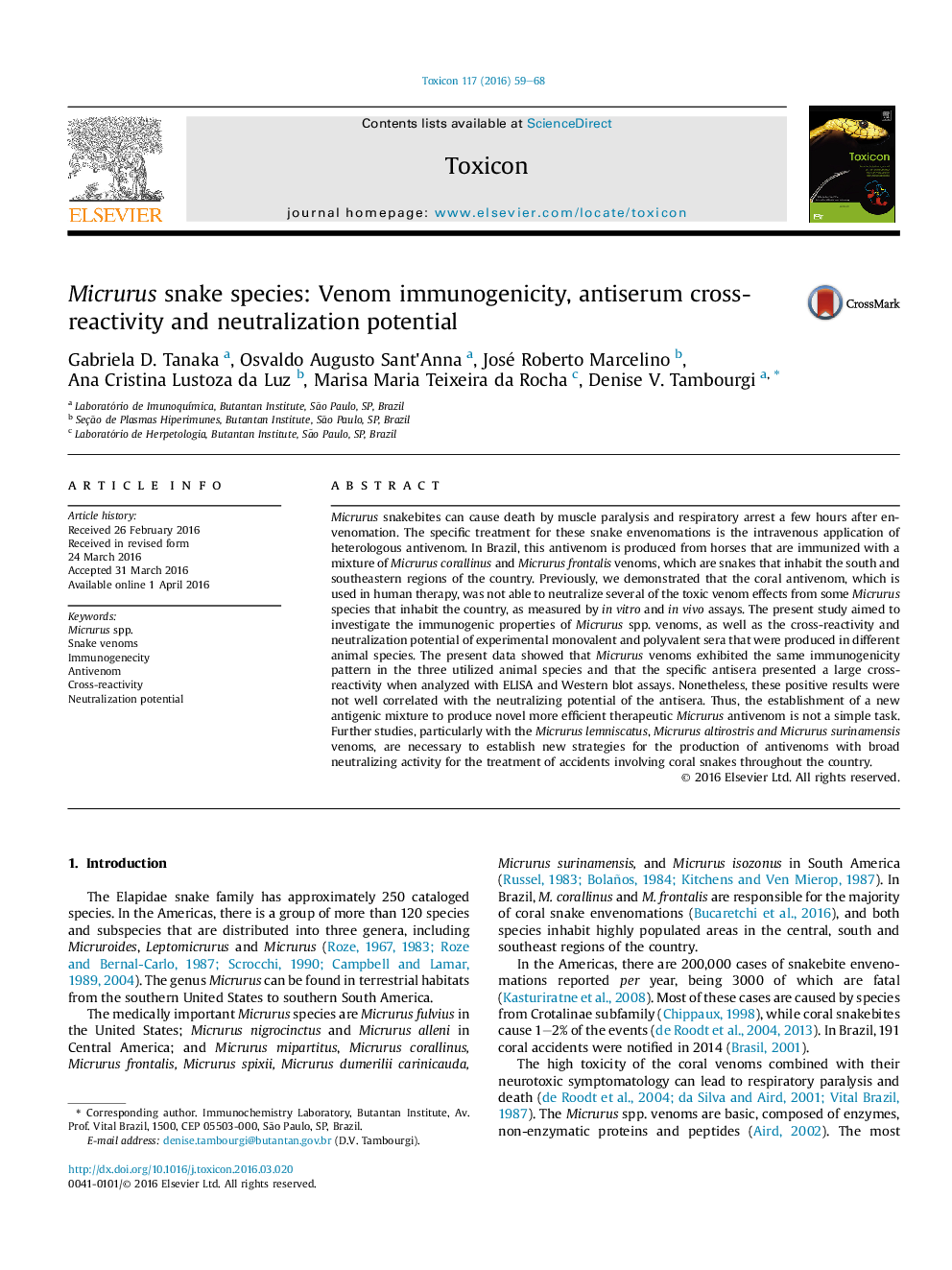| Article ID | Journal | Published Year | Pages | File Type |
|---|---|---|---|---|
| 2064158 | Toxicon | 2016 | 10 Pages |
•Coral venoms induce good antibody responses in mice, rabbits and horses.•Therapeutic or experimental antisera were not able to neutralize all coral venoms.•New strategies have to be found for production of antivenoms with large neutralizing ability.
Micrurus snakebites can cause death by muscle paralysis and respiratory arrest a few hours after envenomation. The specific treatment for these snake envenomations is the intravenous application of heterologous antivenom. In Brazil, this antivenom is produced from horses that are immunized with a mixture of Micrurus corallinus and Micrurus frontalis venoms, which are snakes that inhabit the south and southeastern regions of the country. Previously, we demonstrated that the coral antivenom, which is used in human therapy, was not able to neutralize several of the toxic venom effects from some Micrurus species that inhabit the country, as measured by in vitro and in vivo assays. The present study aimed to investigate the immunogenic properties of Micrurus spp. venoms, as well as the cross-reactivity and neutralization potential of experimental monovalent and polyvalent sera that were produced in different animal species. The present data showed that Micrurus venoms exhibited the same immunogenicity pattern in the three utilized animal species and that the specific antisera presented a large cross-reactivity when analyzed with ELISA and Western blot assays. Nonetheless, these positive results were not well correlated with the neutralizing potential of the antisera. Thus, the establishment of a new antigenic mixture to produce novel more efficient therapeutic Micrurus antivenom is not a simple task. Further studies, particularly with the Micrurus lemniscatus, Micrurus altirostris and Micrurus surinamensis venoms, are necessary to establish new strategies for the production of antivenoms with broad neutralizing activity for the treatment of accidents involving coral snakes throughout the country.
